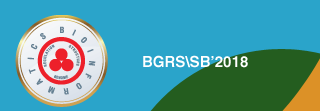Chairs
Vladimir Anisimov, President of Gerontological society of the Russian Academy of Sciences, N.N. Petrov Research Institute of Oncology, Saint-Petersburg, Russia
Natalya Kolosova, Institute of Cytology and Genetics of SB RAS
Elena Pasyukova, Institute of Molecular Genetics, Russian Academy of Sciences, Moscow, Russia
Annotation
The rise of life expectancy in industrialized countries has led to an increase in the proportion of elderly population and the number of people suffering from age-related diseases such as dementia, type 2 diabetes, hypertension, coronary heart disease, neoplastic diseases. The study of the aging process is intended to help for development of new approaches of prevention and treatment of these diseases and to improve the quality of life of older people. Aging is one of the most complex unsolved problems of biology. The accumulated data sets of age-related changes in various species of living beings and the human need to be systematized. The reductionist approach, declaring certain reasons as the main mechanisms of aging, proved to be ineffective. Explanation of functional changes associated with aging requires a multidisciplinary approach and the application of methods for the study of complex stochastic systems. Analysis of the interaction of the components of biological systems is part of the methodology of systems biology. Bioinformatics has the necessary arsenal to operate with large amounts of experimental material. Section “Bioinformatics and systems biology of aging” invites specialists from different branches of biology (genomics, epigenetics, metabolomics, aging biology, bioinformatics, physiology, pharmacology), who uses a systematic approach to the study of various aspects of aging and longevity of humans and animals.








